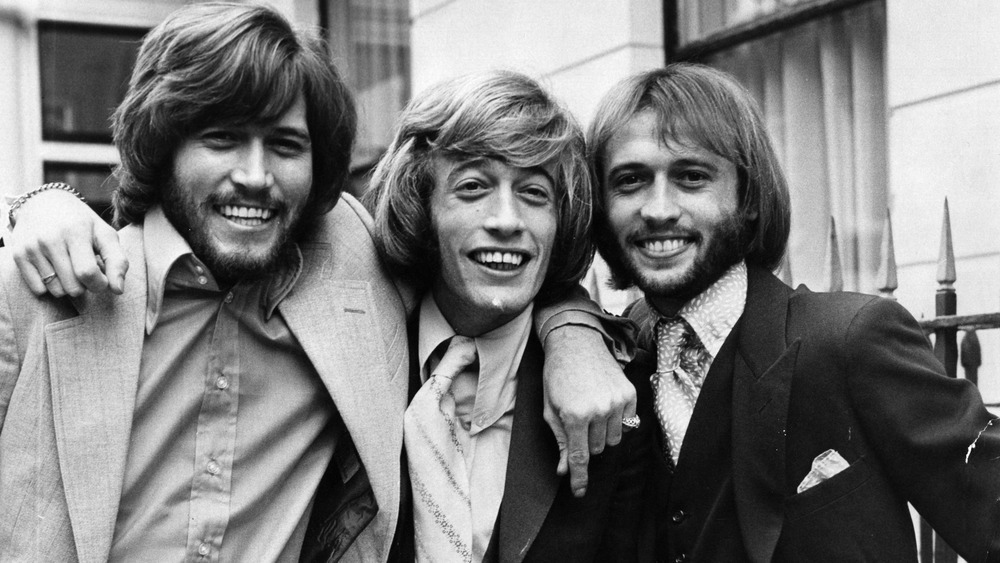
They were kings of the disco era—music legends whose harmonies defined a generation. Yet behind the Bee Gees’ shimmering success was a story marked by hardship, personal struggles, and heartbreaking loss.
Barry Gibb, and his brothers Robin and Maurice, were born on the Isle of Man before their family moved to Manchester, England. The postwar years were hard, and money was scarce. Robin, mischievous as a boy, even earned a reputation as a firestarter, his antics catching the attention of local police. A constable’s quiet suggestion that the family might do better in Australia—away from trouble and poverty—would change their lives forever.
Years later, Barry revealed a haunting childhood memory he had never spoken about before: a man’s attempt to abuse him when he was just four years old. Though the attacker never touched him and was arrested, Barry still remembers the fear and confusion of giving a statement to police in the middle of the night. It was an early lesson in the darkness that can hide behind everyday life.
As they grew into fame, each brother faced their own demons. Maurice battled alcoholism, Robin turned to pills and amphetamines, and Barry smoked marijuana, claiming it sometimes fueled his creativity. Robin’s addictions strained his marriage to the breaking point, ending in divorce and a bitter court battle that at one point saw him accused of threatening his ex-wife’s lawyers. Maurice’s drinking would also cost him his marriage to singer Lulu.
Even their bond as brothers was tested. In 1969, pride and ambition drove Robin to quit the band, believing he could succeed as a solo artist. But without each other, none of them shined as brightly. Reuniting in 1970, they quickly proved that together they were unstoppable, scoring hits like “How Can You Mend a Broken Heart.”
Their youngest sibling, Andy Gibb, never officially joined the group but found his own success with songs like “I Just Want to Be Your Everything.” Yet fame couldn’t shield him from addiction. By the mid-1980s, Andy’s career and finances had collapsed. In 1988, just days after his 30th birthday, he died from myocarditis, a heart condition likely worsened by years of substance abuse.
Tragedy would strike again. In 2003, Maurice entered the hospital for intestinal surgery but suffered a fatal heart attack at just 53. Robin, devastated, would himself battle serious health problems, including cancer. After initially believing he had beaten the disease, he succumbed in 2012 at age 62.
Their mother, Barbara Gibb, outlived three of her five children, passing away in 2016 at 95. Barry, her eldest, remains the last surviving Bee Gee. In interviews, he has spoken of the immense grief of losing all three brothers, admitting there was a time he thought he could never perform again. But music pulled him back. He returned to the stage, collaborated with artists like Coldplay, and even recorded a solo album after decades away.
Barry continues to perform when he can, determined to keep the Bee Gees’ legacy alive. Through the triumphs and tragedies, one truth remains: the Bee Gees’ story is not just about music—it’s about family, resilience, and songs that will live forever.